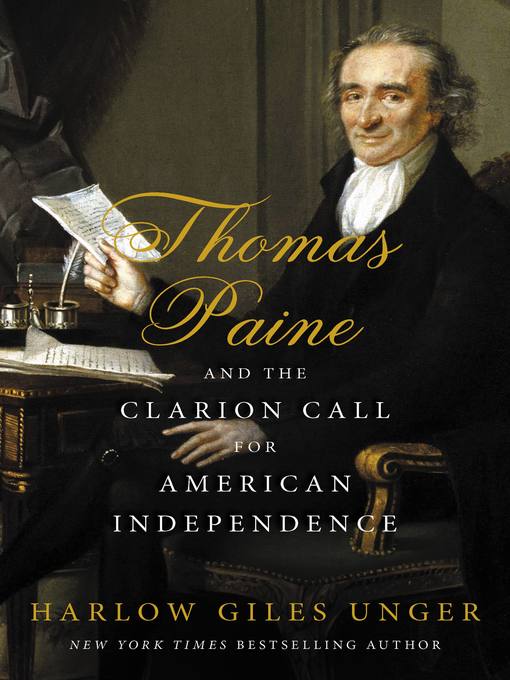
Thomas Paine and the Clarion Call for American Independence
- اطلاعات
- نقد و بررسی
- دیدگاه کاربران
نقد و بررسی

July 1, 2019
A fine biography of one of America's greatest polemicists. Thomas Paine (1736-1809) was a poor, self-educated craftsman and writer born in Britain, writes prolific historian Unger (Doctor Benjamin Rush: The Founding Father Who Healed a Wounded Nation, 2018, etc.), former distinguished fellow at George Washington's Mount Vernon. Paine arrived in America in 1774 with letters of recommendation from Benjamin Franklin and found a job as editor of the Pennsylvania Magazine. When his pamphlet Common Sense appeared in January 1776 as the Revolution was underway, it went viral, perhaps "the greatest publishing success of the 18th century and, in many ways, the most important publishing event since Martin Luther's 95 Theses that provoked the Reformation." Unlike typical prolix 18th-century writing, it's an easy read even today, and its fiery denunciation of Britain made Paine, Unger maintains, the second most popular Revolutionary figure. Americans also devoured The American Crisis, 16 inspirational pamphlets published between 1776 and 1783. Thrilled with the French Revolution, Paine also wrote Rights of Man, another fierce polemic that delighted American supporters of the Revolution (the Democrats) but not those opposed (Federalists). Traveling to France, he fell afoul of Robespierre; imprisoned in 1793, he barely escaped the guillotine. In prison, he began writing The Age of Reason, which praised Jesus' teaching but criticized organized religions and described the Bible as a collection of myths. Educated Enlightenment figures such as Jefferson and Franklin held similar beliefs, but unlike other religious writing, Paine's prose was crystal-clear and his book cheap. The masses snapped it up and were outraged. Reviled for atheism and shunned by the establishment, he died in obscurity, from which he is only now emerging. Historians, Unger included, now consider Paine as central to the Revolution as Washington and Jefferson, but The Age of Reason killed his chance of entering semidivinity as a Founding Father in the popular mind. This vivid, insightful account gives Paine his due, but he remains an outlier to our founders.
COPYRIGHT(2019) Kirkus Reviews, ALL RIGHTS RESERVED.




دیدگاه کاربران